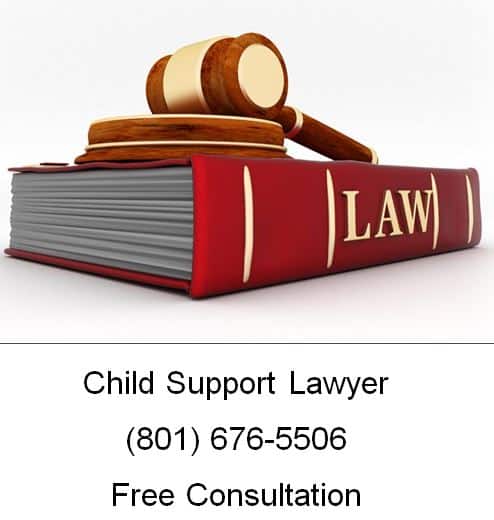Life insurance can be an important part of estate planning, especially for the parents of young children or a disabled child. The purpose of an insurance policy is to provide cash for the beneficiaries upon the premature death of the policyholder. For a person that does not receive regular income from investments or other assets, an insurance policy can replace lost earned income.
The following is an overview of some of the available life insurance options.
Term Life Insurance
Pros
- It is relatively inexpensive
- Various policy terms of coverage are available
Cons
- It is subject to cancellation
- Premiums become more expensive as the policyholder ages
The policyholder of term life insurance receives coverage for a certain amount of time specified in the policy. Because it only covers a specified period and the premium only pays for the insurance policy, this is the least expensive type of insurance available. Terms of coverage, for instance, may range from 5, 10, or 20 years. Once the term ends, the policyholder may have the option to renew the policy beyond the original term but the premium usually increases with each renewal.
Depending on the insurance company, a policyholder may have several options under term life insurance. For instance, many policies can be:
- Renewed: Upon termination, a policyholder may continue coverage by paying a new premium and renewing coverage for a new term.
- Converted: During the policy term, the policyholder may change from term life to a permanent life insurance option offered by the insurer.
Term insurance is not appropriate for all types of policyholders. For instance, term life insurance may be most beneficial to a person with young children or for a person with temporary expenses, such as a home mortgage or an auto loan. Term insurance is less desirable for a person living off investments and retirement income.
Permanent Life Insurance
Pros
- It is not subject to cancellation unless the premium is not paid
- It endures for the life of the policyholder
- It is a type of investment
- Tax benefits may apply
Cons
- It is expensive
- Commissions and fees may be high
- Policies are complex
Permanent life insurance is more expensive than term life insurance because it is effective during the entire life of the policyholder (as long as the premiums are paid) and the excess paid into the policy is invested. In general, the premium remains the same over the entire length of the policy. The excess that accumulates from the premium may yield dividends or interest; the policyholder will receive some of this return. The policyholder can choose to apply the investment income to the reserves, borrow against the cash value, or terminate the insurance policy and receive the cash surrender value. The growth in the value of the reserve is tax deferred under federal tax law, unless the policyholder receives the money. In some cases, a partial withdrawal will escape tax liability. In making these determinations, you should always speak with an estate planning lawyer so all of your needs can be addressed and you can be on the right track.
Permanent life insurance is beneficial for someone with a child with special needs or for someone that expects estate taxes to be high.
The following are the various types of permanent life insurance options:
Whole Life Insurance
Whole life insurance provides the policyholder with lifelong coverage as long as they pay the fixed premium amount throughout their life. In general, the younger the policyholder is when beginning coverage, the less expensive the annual premiums will be. As the policyholder pays into the life insurance policy, the cash reserve continues to build. The policyholder may borrow from the cash reserve at the current policy loan interest rate or surrender the policy and receive the cash value of it.
Universal Life Insurance
Universal life insurance combines flexibility with the accumulation of investment income. The following are the benefits of universal life insurance:
- Can change the amount of life insurance
- Can adjust the death benefit and premium payments within the limitations of the policy
- The account value earns tax-deferred interest
- The net cost of the policy is less than whole life insurance
- Can borrow or withdraw money from the cash reserve
Variable Life Insurance
A variable life insurance policy allows the policyholder to invest cash reserves into stocks, bonds, and securities. The policyholder will bear some of the risk, but the insurance company will guarantee a certain return on the investment. Consequently, the death benefit depends on how well the investments perform.
Variable Universal Life Insurance
Variable universal life insurance is a combination of the flexibility of universal life insurance with the investment strategy and the risk factor of variable life insurance.
Single Premium Life Insurance
The policyholder of single premium life insurance will pay the entire premium amount in one up-front payment. The benefits include the immediate accumulation of cash value, the elimination of cancellation, and the distribution of tax-free proceeds to the beneficiaries.
Survivorship Life Insurance
Survivorship life insurance, also referred to as “second to die” insurance, is a single policy that insures two people, usually spouses, for a single insurance benefit. When the first person on the policy dies, the survivor continues making payments on the premium. Only after the survivor dies does the insurance company pay the beneficiaries of the policy.
This insurance policy is appropriate for wealthy couples that expect substantial estate taxes or for people with non-liquid assets like a family business. In this situation, the proceeds from the insurance policy can be used to buyout an ownership interest.
Free Consultation with a Utah Estate Lawyer
If you are here, you probably have an estate issue you need help with, call Ascent Law for your free estate law consultation (801) 676-5506. We want to help you.
8833 S. Redwood Road, Suite C
West Jordan, Utah
84088 United States
Telephone: (801) 676-5506
Recent Posts
Shareholder Rights and Derivative Actions
Contested and Uncontested Divorce Lawyer
FLP for Asset Protection in Utah
Source: https://www.ascentlawfirm.com/life-insurance-options/







